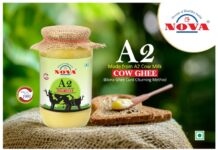New Delhi, August 22, 2021: The Bureau of Indian Standards’ (BIS) quality control order on tin plates issued in April will affect India’s metal packaging industry of around Rs 5,000 crore. The Draft Steel Quality Control order includes ‘Cold Reduced Electrolytic Tinplate’, an import component used in packing baby food, milk power, mango pulp, coffee among other edible and non edible items.
Industry body Metal Container Manufacturers Association (MCMA) feels that the order, which will come into force by next month, needs to be reviewed as it will impact the metal packaging industry, which employs over a lakh people. According to MCMA President Sanjay Bhatia tin can is an “industrial product and not an item of mass consumption”.
Industry consumes around 550,000 tonnes of tin mill products (tinplate/tinfree steel etc), of which about 60 per cent is prime and 40 per cent non-prime. Domestic availability is about 325,000 tonnes and the balance is imported from different countries such as Japan, Korea, Brazil, Europe, USA, China, Venezuela, etc.
“The firms in these countries follow rigorous global quality control orders and since we do not import large quantities they will not take pains to get BIS certification, which will impact us as we will not get good material at competitive rates,” Bhatia told PTI.
Prime material is mainly required for edible products like processed food, fruits and vegetables, dairy products, edible oil etc while non-prime (secondaries arising out of Prime) are required for non-edible products such as in packing of paints, industrial oils among others, according to reports published in dairynews7x7.com
“The order brings a non-tariff barrier in order to protect the domestic producers, but the production in the country is not sufficient enough to meet the demand of the industry both in terms of volume as well as grades,” he countered.
In certain applications industry requires continuous annealed material, high precision shearing in terms of squareness for products like battery jackets, scroll tinplate sheets which the domestic producer is not in a position to supply, he said.
“We have approached the Prime Minister’s Office, Steel Ministry, Commerce Ministry, Ministry of Medium and Small Enterprises with our demand. A similar order had come in 2007-08 and the government had taken it back. We are hopeful that something can happen this time as well,” he added.
The order will also reduce the competitive strength of metal packaging industry as it is likely to result in increase in cost of raw material involved in BIS marking fees and other related expenses as compared to other packaging material like plastic, paper, glass, Bhatia said.



























